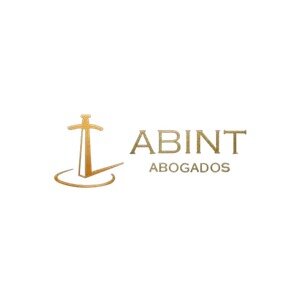Best Native People Lawyers in Venezuela
Share your needs with us, get contacted by law firms.
Free. Takes 2 min.
Or refine your search by selecting a city:
List of the best lawyers in Venezuela
About Native People Law in Venezuela
Native People in Venezuela, also known as indigenous peoples, are groups that have inhabited the country for centuries and have their own customs, languages, and traditions. The Venezuelan government recognizes their rights to land, culture, and self-determination.
Why You May Need a Lawyer
There are various situations where you may need a lawyer specializing in Native People law in Venezuela, such as land disputes, cultural heritage protection, human rights violations, and government relations. A lawyer can help you navigate the legal system and ensure that your rights are upheld.
Local Laws Overview
In Venezuela, the rights of Native People are protected under the Constitution, international treaties, and specific laws that recognize their ancestral lands, cultural heritage, and self-governance. It is essential to understand these laws to advocate for the rights of indigenous groups effectively.
Frequently Asked Questions
1. What rights do Native People have in Venezuela?
Native People in Venezuela have the right to their ancestral lands, self-determination, cultural autonomy, and participation in decision-making processes that affect them.
2. Can Native People in Venezuela own land?
Yes, Native People in Venezuela have the right to own, use, and control their ancestral lands, which are essential for their cultural survival and well-being.
3. How can I support Native People in Venezuela?
You can support Native People in Venezuela by respecting their rights, advocating for their interests, and promoting their cultural heritage and traditions.
4. What legal resources are available for Native People in Venezuela?
There are legal aid organizations, indigenous rights groups, and governmental bodies in Venezuela that provide support and resources for Native People facing legal issues.
5. Are there special courts for Native People in Venezuela?
Yes, Venezuela has special indigenous courts that handle disputes and legal matters concerning Native People and their communities, based on their customs and traditions.
6. How can I learn more about the legal rights of Native People in Venezuela?
You can consult legal professionals, indigenous rights organizations, government publications, and international human rights reports to learn more about the legal rights of Native People in Venezuela.
7. Can Native People in Venezuela practice their own customs and traditions?
Yes, Native People in Venezuela have the right to practice their own customs, traditions, languages, and cultural ceremonies, which are essential for preserving their cultural identity.
8. What are the common legal issues faced by Native People in Venezuela?
Common legal issues faced by Native People in Venezuela include land disputes, natural resource extraction, environmental degradation, discrimination, and lack of government support for their rights and well-being.
9. How can I get legal advice for Native People issues in Venezuela?
You can consult a lawyer specializing in Native People law in Venezuela or contact indigenous rights organizations and legal aid groups for guidance and support in addressing legal issues affecting indigenous communities.
10. What steps can I take to protect the rights of Native People in Venezuela?
You can raise awareness about indigenous rights, support advocacy initiatives, engage with policymakers, and promote dialogue and collaboration with Native People in Venezuela to protect their rights and ensure their well-being.
Additional Resources
For additional resources and support related to Native People in Venezuela, you can contact the Ministry of Indigenous Peoples, the National Indigenous Rights Commission, and local indigenous rights organizations for assistance and information on legal matters affecting indigenous communities.
Next Steps
If you require legal assistance regarding Native People issues in Venezuela, it is essential to consult a lawyer with expertise in indigenous rights and engage with relevant organizations and authorities to address your legal concerns effectively. Be proactive in advocating for the rights and well-being of Native People in Venezuela to ensure their cultural survival and dignity.
Lawzana helps you find the best lawyers and law firms in Venezuela through a curated and pre-screened list of qualified legal professionals. Our platform offers rankings and detailed profiles of attorneys and law firms, allowing you to compare based on practice areas, including Native People, experience, and client feedback.
Each profile includes a description of the firm's areas of practice, client reviews, team members and partners, year of establishment, spoken languages, office locations, contact information, social media presence, and any published articles or resources. Most firms on our platform speak English and are experienced in both local and international legal matters.
Get a quote from top-rated law firms in Venezuela — quickly, securely, and without unnecessary hassle.
Disclaimer:
The information provided on this page is for general informational purposes only and does not constitute legal advice. While we strive to ensure the accuracy and relevance of the content, legal information may change over time, and interpretations of the law can vary. You should always consult with a qualified legal professional for advice specific to your situation.
We disclaim all liability for actions taken or not taken based on the content of this page. If you believe any information is incorrect or outdated, please contact us, and we will review and update it where appropriate.
Browse native people law firms by city in Venezuela
Refine your search by selecting a city.









